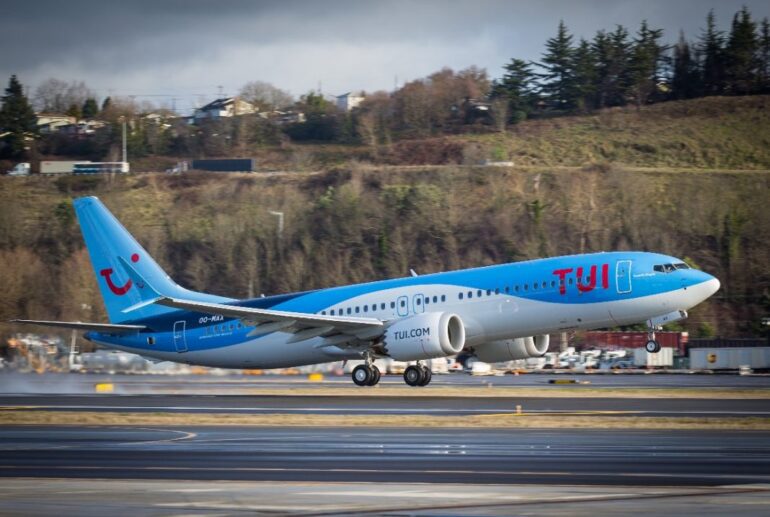TL;DR:
- TUI Airline adopts SITA’s OptiClimb solution for sustainability.
- Achieved significant fuel and CO2 savings during partial deployment.
- SITA OptiClimb employs machine learning for tail-specific performance models.
- Utilizes 4D weather forecasts and flight plan inputs to predict fuel burn.
- Provides customized climb speeds to optimize fuel efficiency.
- Fuel represents 30% of an airline’s operating costs.
- Airlines are turning to digital solutions like SITA OptiClimb for emission reduction.
- SITA estimates potential annual carbon savings of 5.6 million tons if widely adopted.
- Fully deployed across all five TUI Group airlines in 2022.
- Resulted in 4,500 tons of fuel and 14,000 tons of carbon savings for TUI Airline.
Main AI News:
In a decisive move towards its sustainability mission, TUI Airline has successfully implemented SITA’s groundbreaking OptiClimb solution across all five of its airlines. This strategic adoption is set to revolutionize the aviation industry by significantly reducing airline emissions.
Initially introduced on a partial deployment basis, SITA’s state-of-the-art technology has already demonstrated its prowess by saving an impressive 200 kilograms of fuel and a substantial 600 kilograms of CO2 emissions per aircraft per day. The key to this remarkable achievement lies in SITA OptiClimb’s predictive analytics, driven by cutting-edge machine learning algorithms.
SITA OptiClimb leverages a comprehensive dataset that includes 4D weather forecasts and operational flight plan inputs. This data fuels the creation of tail-specific performance models, which in turn allow for precise predictions of fuel consumption scenarios. The true magic happens when this information is translated into customized climb speeds and acceleration levels tailored to the unique characteristics of each aircraft and its specific flight parameters. This enables pilots to optimize fuel efficiency without compromising on crucial flight schedules.
According to the International Air Transport Association (IATA), fuel costs represent a staggering 30% of an airline’s operating expenses. As airlines globally seek innovative ways to mitigate their carbon footprint and operating costs, digital applications like SITA OptiClimb are increasingly being embraced. These applications complement longer-term strategies such as the adoption of sustainable aviation fuels.
SITA’s projections are nothing short of astounding, estimating potential annual carbon savings of approximately 5.6 million tons if every airline were to adopt SITA OptiClimb. As for TUI Airline, the technology’s full-scale deployment across all five of its airlines, namely TUI Airways, TUI fly Belgium, TUI fly Germany, TUI fly Netherlands, and TUI fly Nordic, has yielded remarkable results. In 2022 alone, TUI Airline achieved substantial savings, conserving an impressive 4,500 tons of fuel and a noteworthy 14,000 tons of carbon emissions.
Conclusion:
TUI Airline’s successful implementation of SITA’s OptiClimb flight technology marks a significant step toward sustainability in the aviation industry. The adoption of innovative solutions like OptiClimb not only aligns with environmental goals but also has the potential to substantially reduce operating costs for airlines. As the industry seeks to balance profitability with environmental responsibility, such advancements are poised to drive meaningful change in the market.

